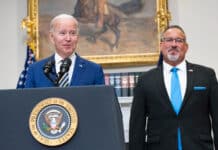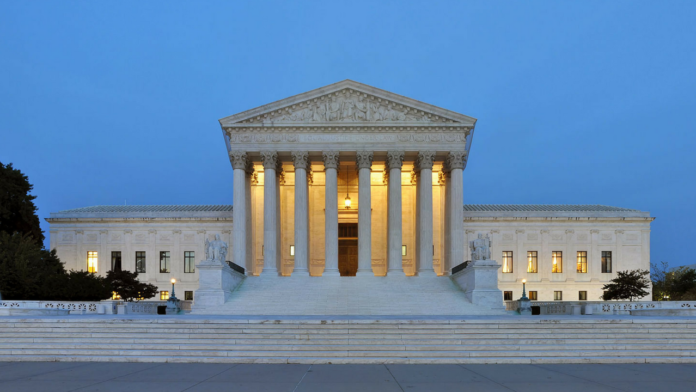WASHINGTON – A Minnesota law prohibiting voters from wearing “political” apparel at polling places is unconstitutional, the U.S. Supreme Court ruled Thursday.
The Supreme Court ruled in a 7-2 vote that the Minnesota law, which goes back to 1912 and bans voters from wearing political apparel, violates the First Amendment.
The law broadly prohibits anybody from wearing from wearing anything with “political insignia” inside polling places on Election Day. Violators of this law face a civil penalty or prosecution for a petty misdemeanor.
At his polling place in 2010, Andy Cilek of Eden Prairie was prevented from voting for wearing his “Please I. D. Me” button and “Don’t Tread on Me” T-shirt. Cilek was told that he must cover up his attire or take it off before he would be allowed to cast his votes. He refused but was later allowed to proceed after being threatened with prosecution and having his name and address written down.
Cilek sued the state of Minnesota, arguing that the ban on political apparel is unconstitutional. The state defended the ban, claiming that the restrictions were a “reasonable, viewpoint-neutral” way to provide a safe environment for voters.
“The State emphasizes that the ban covers only apparel promoting groups whose political positions are sufficiently ‘well-known,’” Chief Justice John Roberts said. “But that requirement, if anything, only increases the potential for erratic application. Well known by whom? The State tells us the lodestar is the “typical observer” of the item.”
Justice Sonia Sotomayor and Justice Stephen Breyer voted to uphold the law.
“The Court should be wary of invalidating a law without giving the State’s highest court an opportunity to pass upon it,” Justice Sotomayor said. “Because the Court declines to take the obvious step of certification in this case, I respectfully dissent.”

















